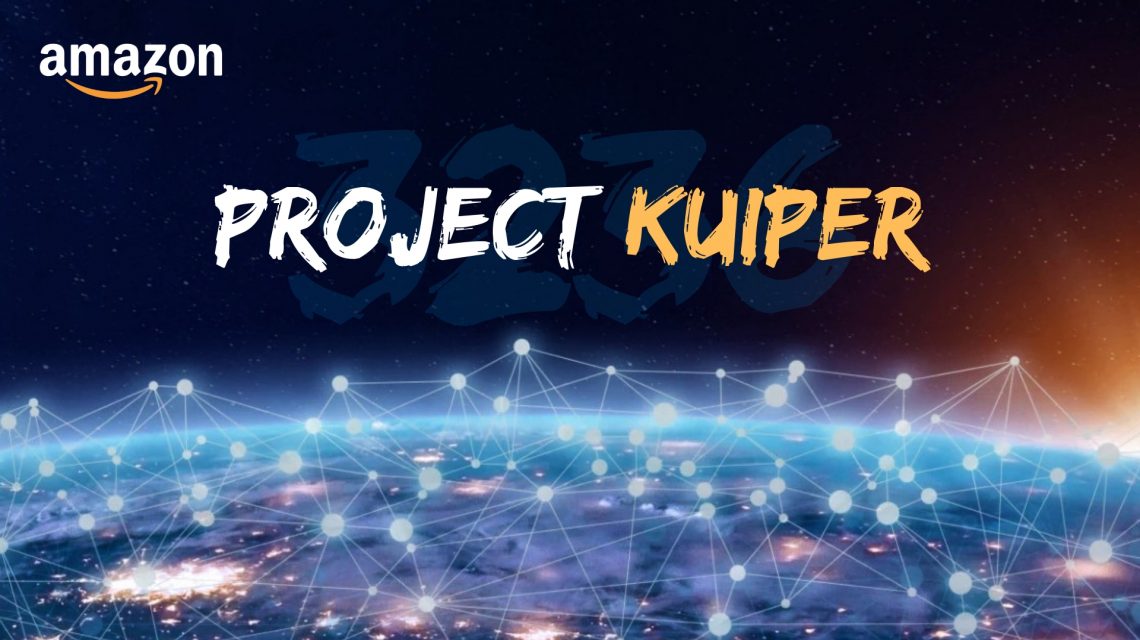Juggernaut Battle Incoming: Starlink vs. Kuiper
What do you do when Amazon comes for your lunch?
Amazon has announced a $10B investment in a LEO constellation
Joining SpaceX in the race to establish a Low Earth Orbit (LEO) satellite constellation, Amazon announced on Thursday, 30 July, 2020 that the company would be investing $10 Billion in Project Kuiper, a new constellation that would provide broadband internet access on a global scale. This announcement follows SpaceX’s announcement and initial deployment of its Starlink service, and the two giants will fight for their shares of the LEO broadband market throughout the decade as both deploy 12,000+ satellites.
SpaceX already has plans to offer broadband service to some markets in the US and Canada by year’s end with the 500+ satellites it has already launched. Amazon would not begin servicing markets until it too has launched 500 satellites, and the company has been given a deadline by the FCC of 2026 to launch half of its constellation, with the full deployment required by 2029. In order to compete with SpaceX, its learning curve for building and deploying satellites will need to reflect the company’s ability to leverage their assets to catch up with SpaceX’s market expertise quickly. As of Thursday, Amazon had over 100 open positions directly related to Project Kuiper, which will be based in a new facility in Redmond, just outside of the company’s headquarters in Seattle.
Leveraging Opportunities
Prior to joining GSE, my career was based in the startup world, as both an entrepreneur and a strategic consultant. One of the most common exercises that I used to perform with my clients was to work out answers to the question “what happens if Amazon comes for my lunch?” Meaning, of course, that it was important to consider the implications of the largest and most rapidly expanding company of the 2010s deciding to move into the industry sector that your company occupies. How would you compete? Would a force of that size put you out of business immediately? How can you position yourself to be adaptable, and to potentially leverage opportunities from that kind of incursion?
The reality is that a number of the companies, after examining that scenario, determined it to be too great of a risk to move forward. Others developed exit strategies to accommodate, and fewer still decided to accept the risk and move forward with business as planned. The fact is that there is no good way to insulate a business from a company like Amazon deciding to consume market share, so the best thing to do is to have a plan for when it happens. Now that Amazon has announced its plans to join SpaceX in the pursuit of market share in the LEO market, it is already past time for satcom companies to pull together their strategies. What the industry must do now is adapt.
My previous article, Designing for Growth, tackles the concept of creating products that have the ability to meet market needs in the present and to evolve with industry trends. Amazon moving into satcom is a massive opportunity for IoT/M2M hardware and telematics tools, and a major disruption in the market, especially because they’re moving in to compete with an Elon Musk company that is also aggressively pursuing the space. GSE is well-positioned with its GSatTrack product, and we are making plans to accommodate the wealth of new applications that will come from ubiquitous connectivity in the telematics space. What is your company doing in anticipation of the Starlink-Kuiper battle of the 2020s? Are you ready to grow, or do you still need to work out your strategy?



